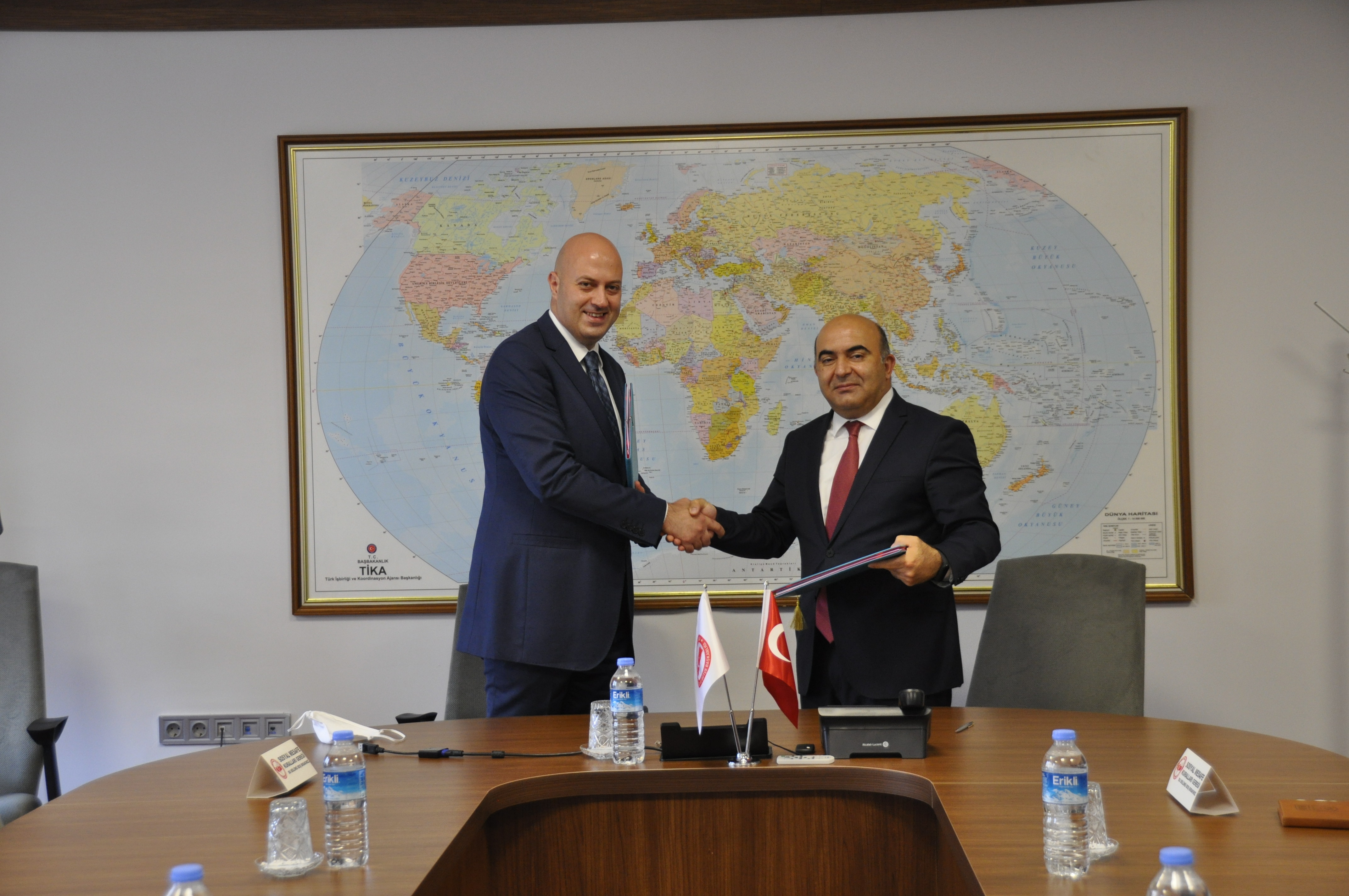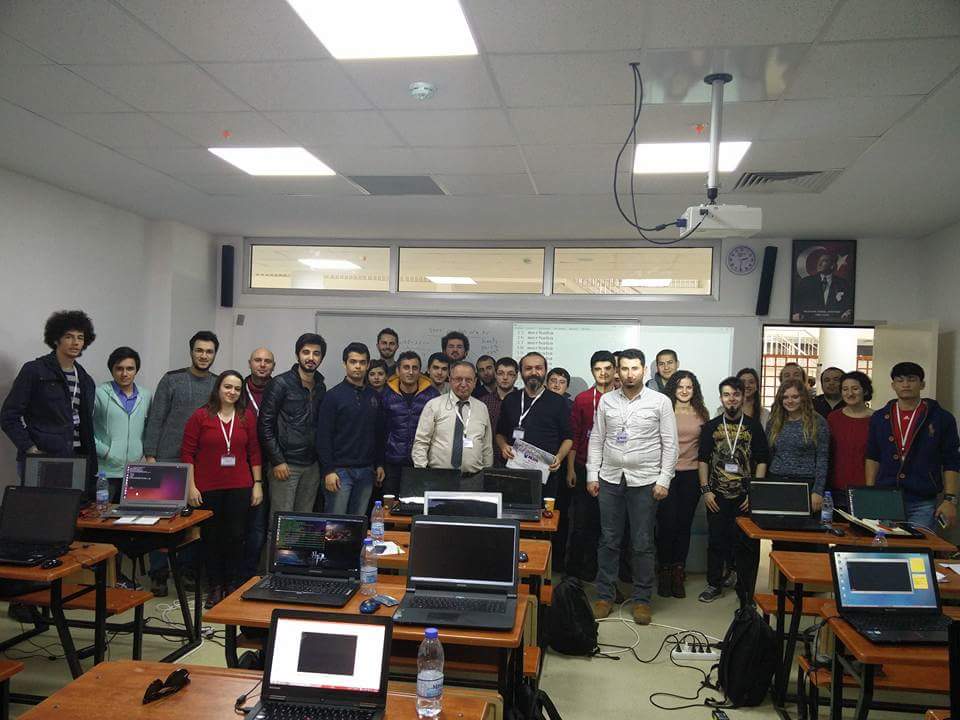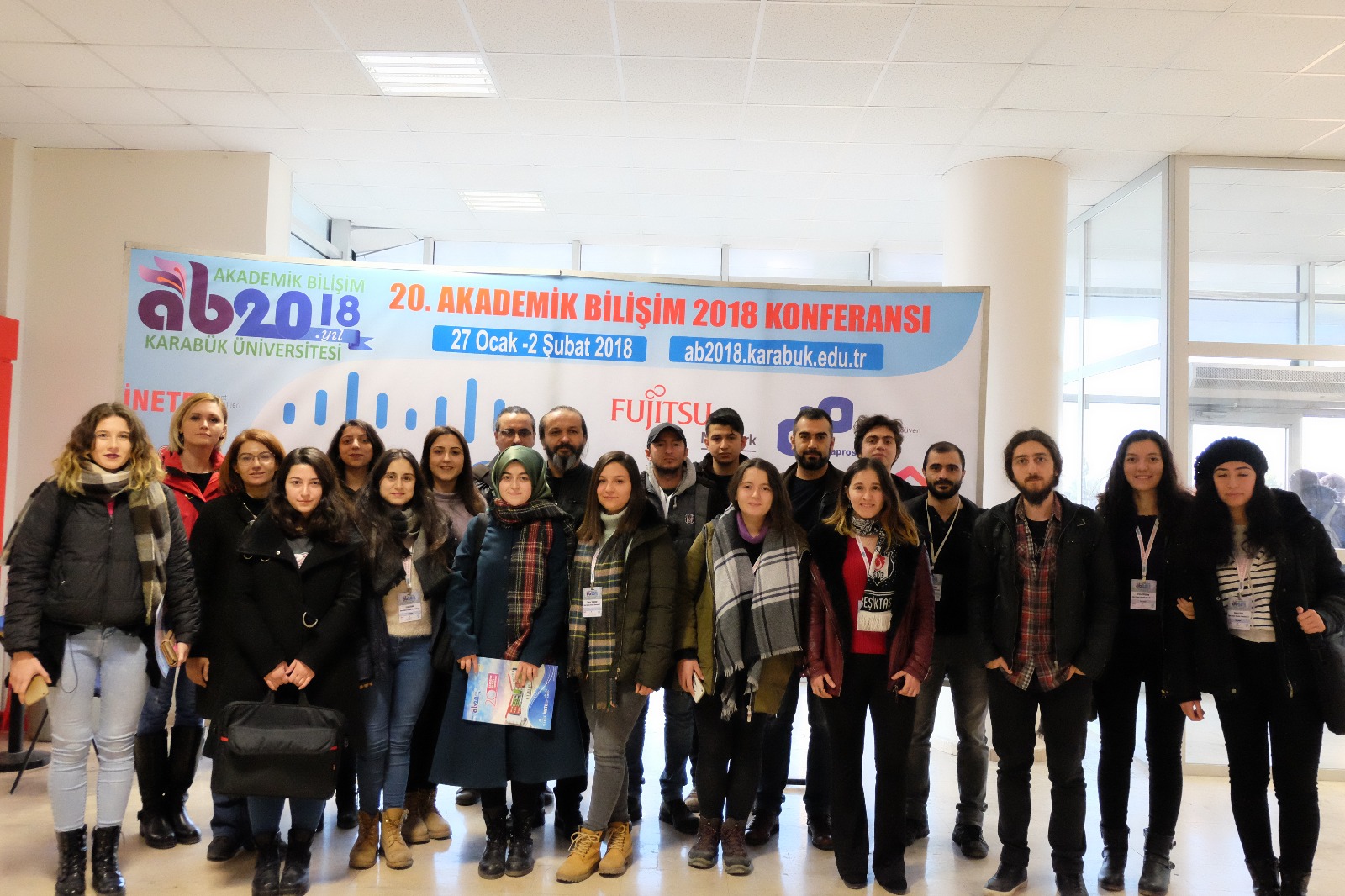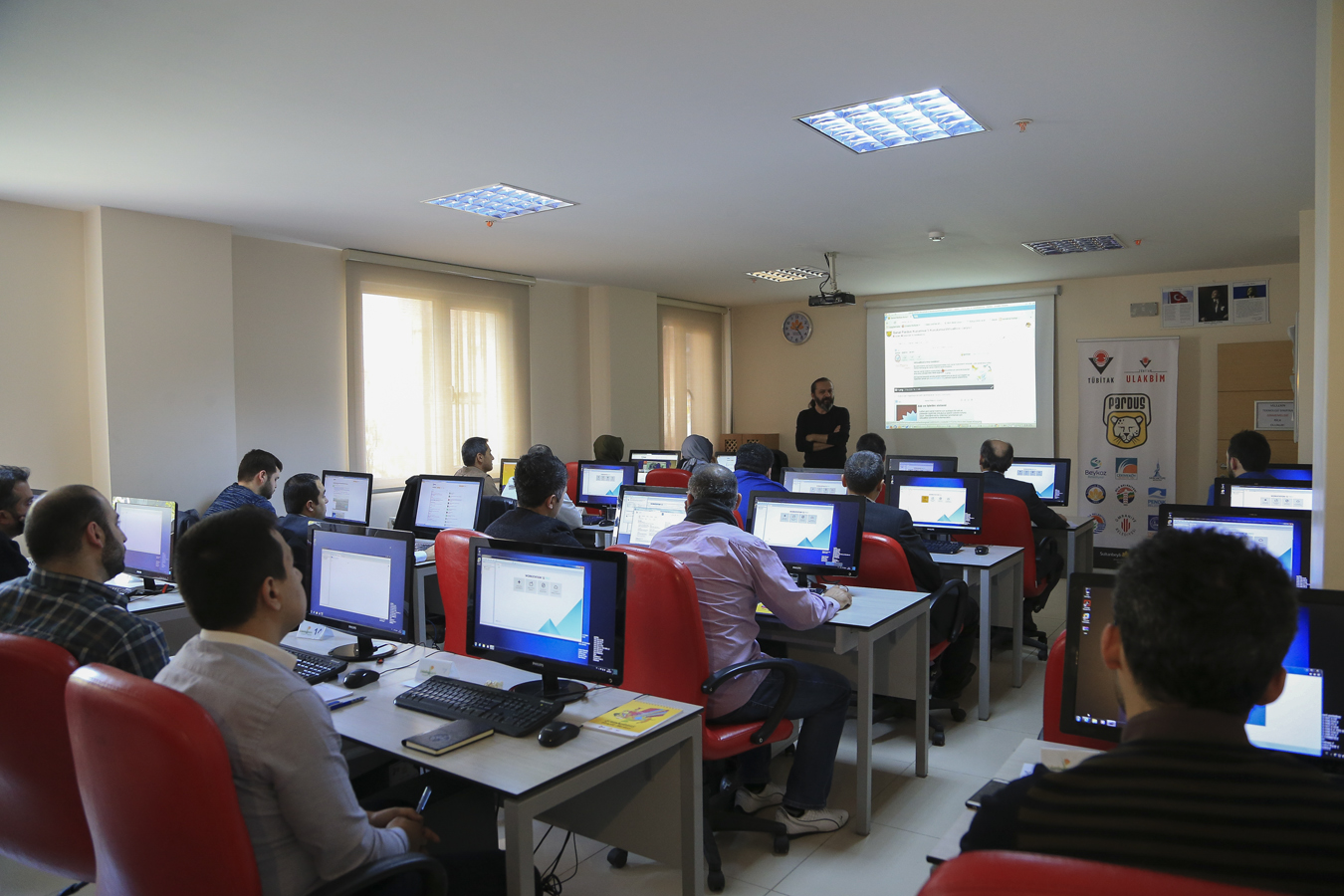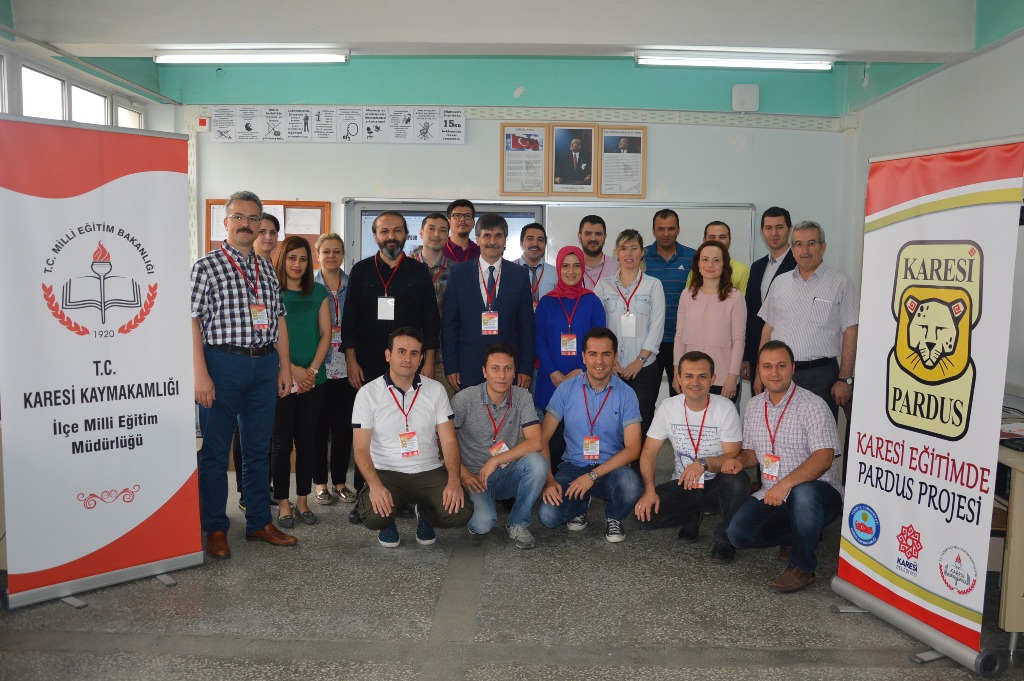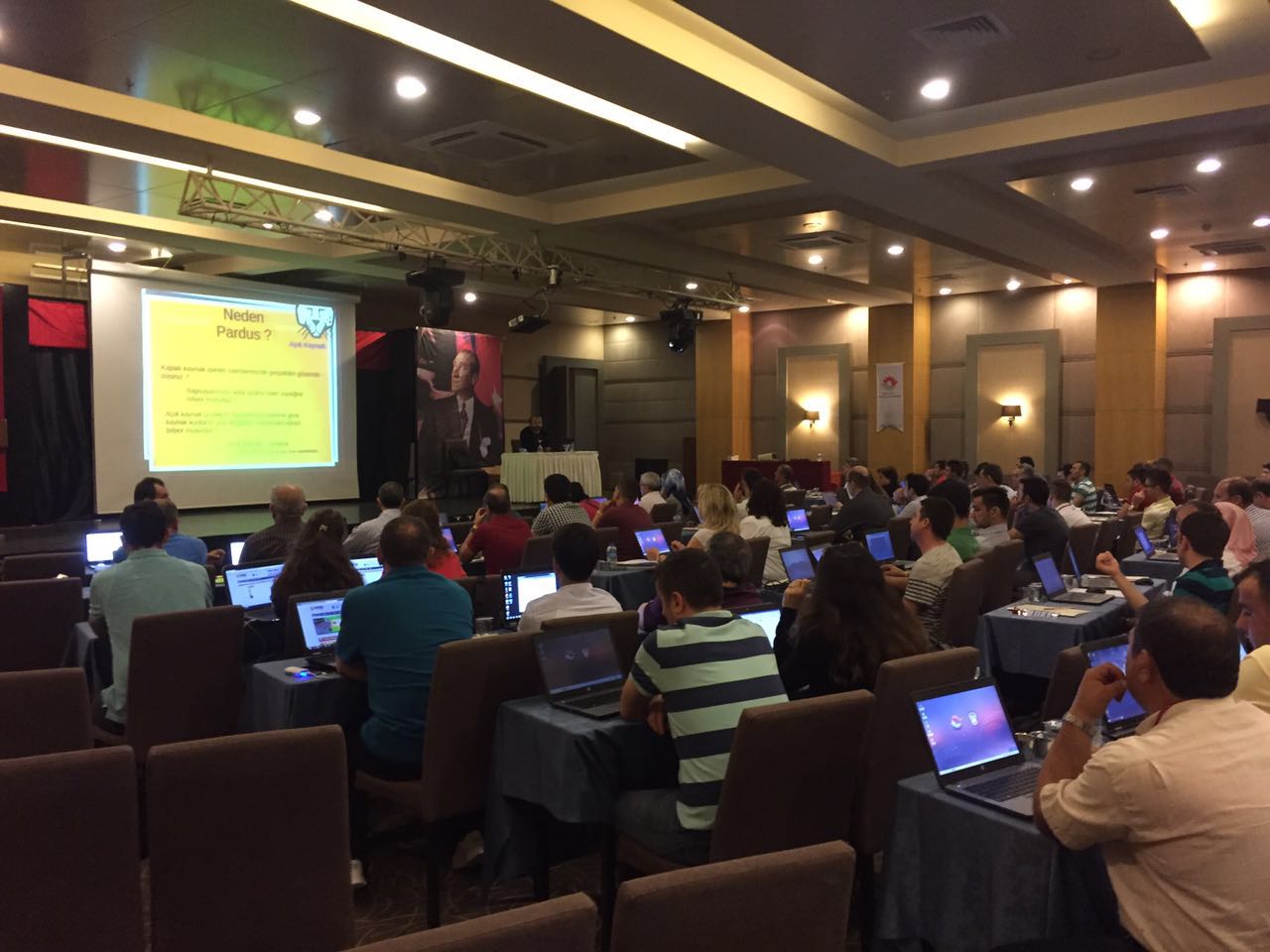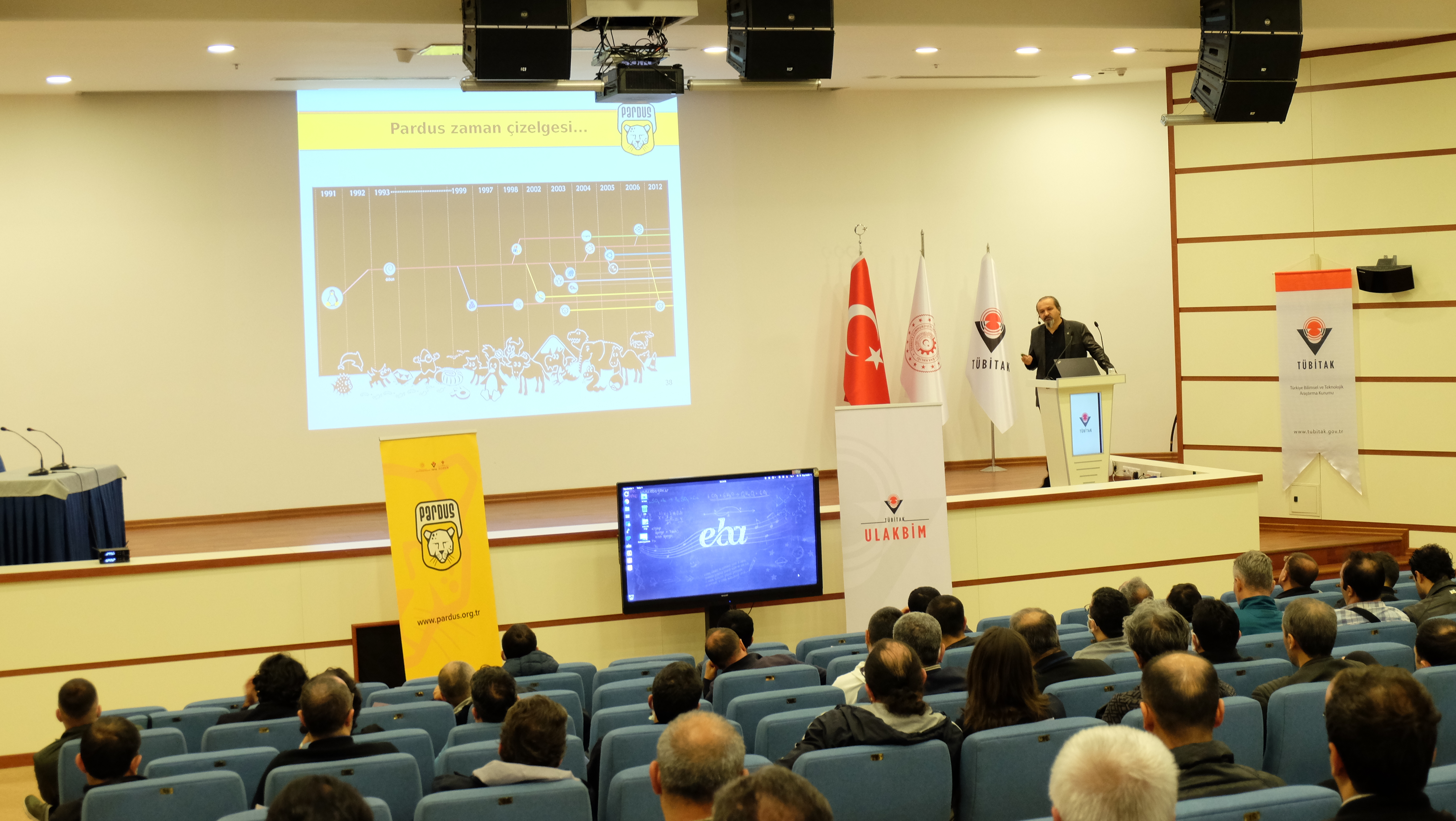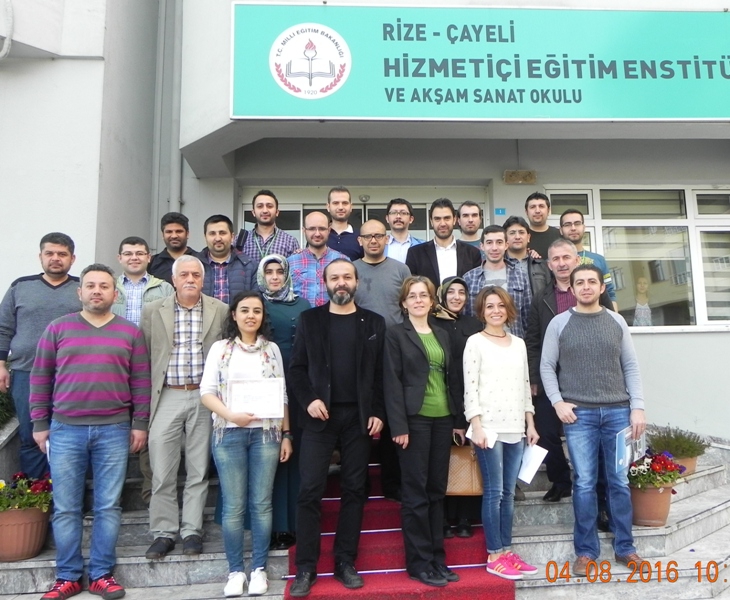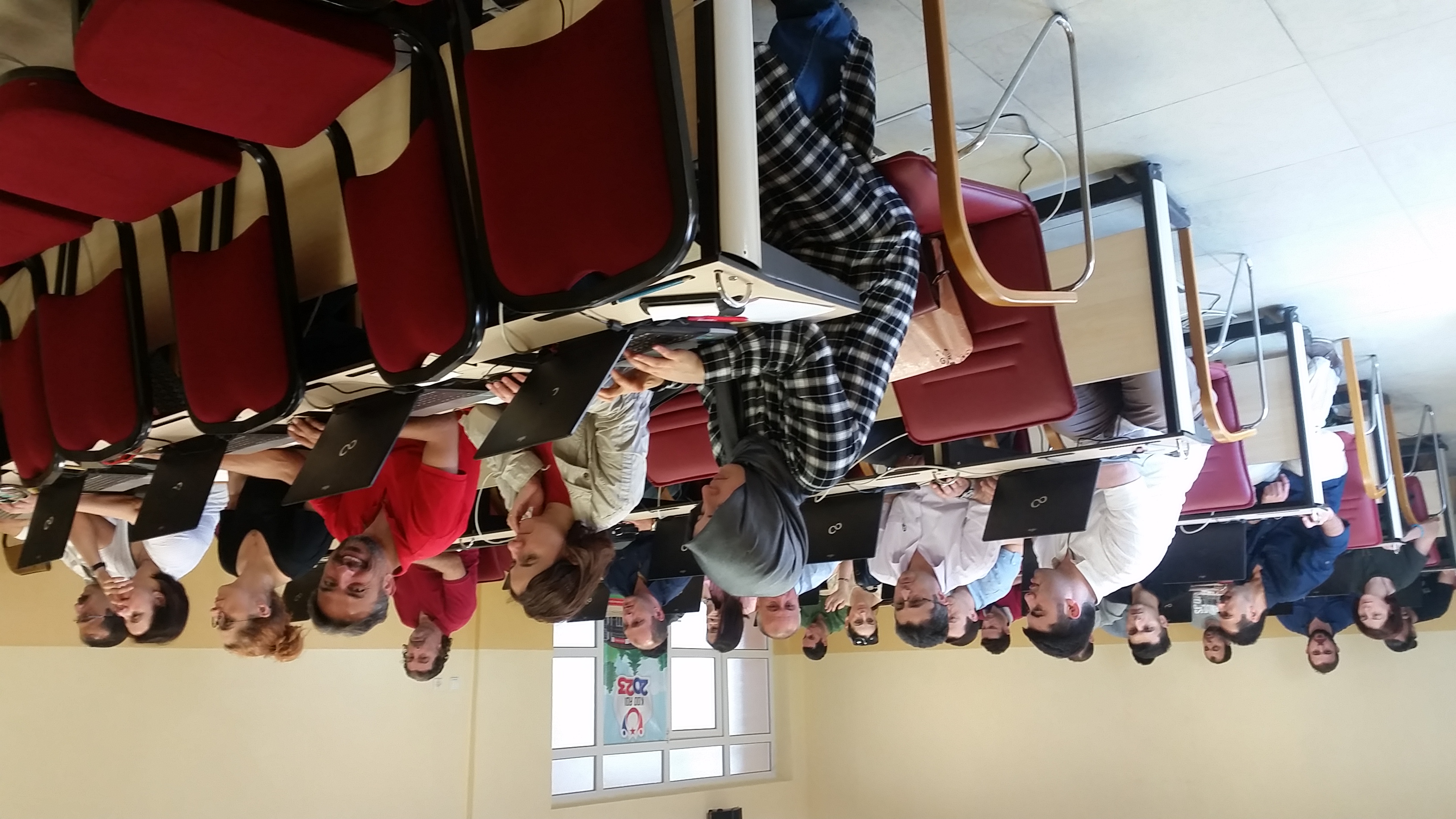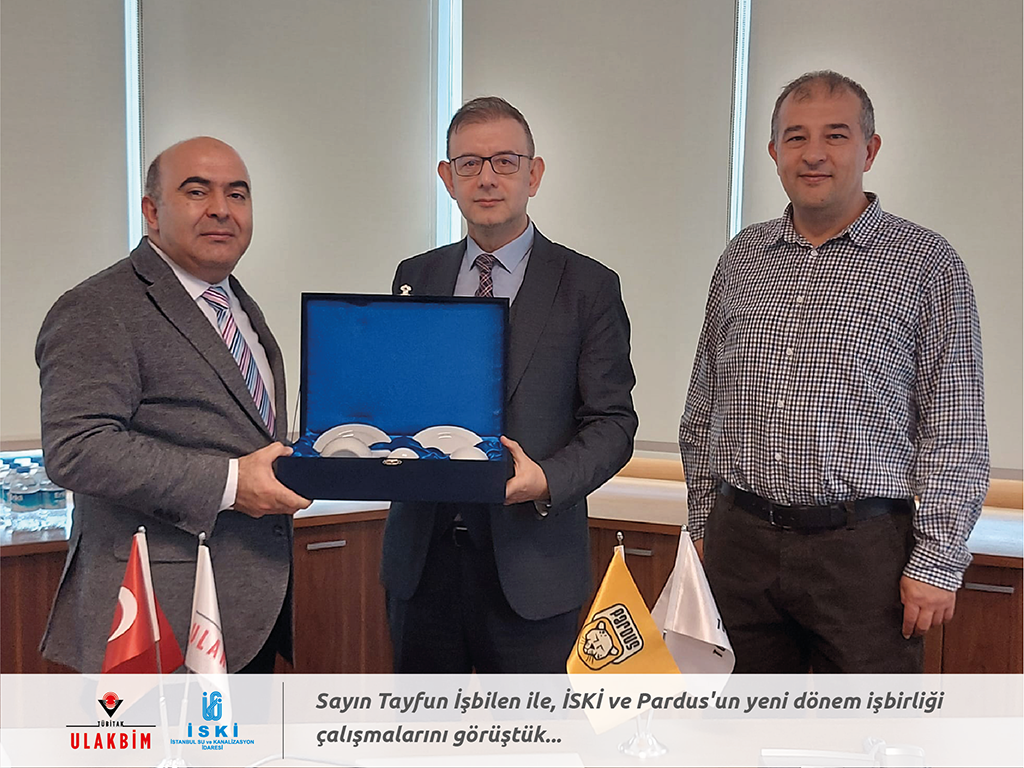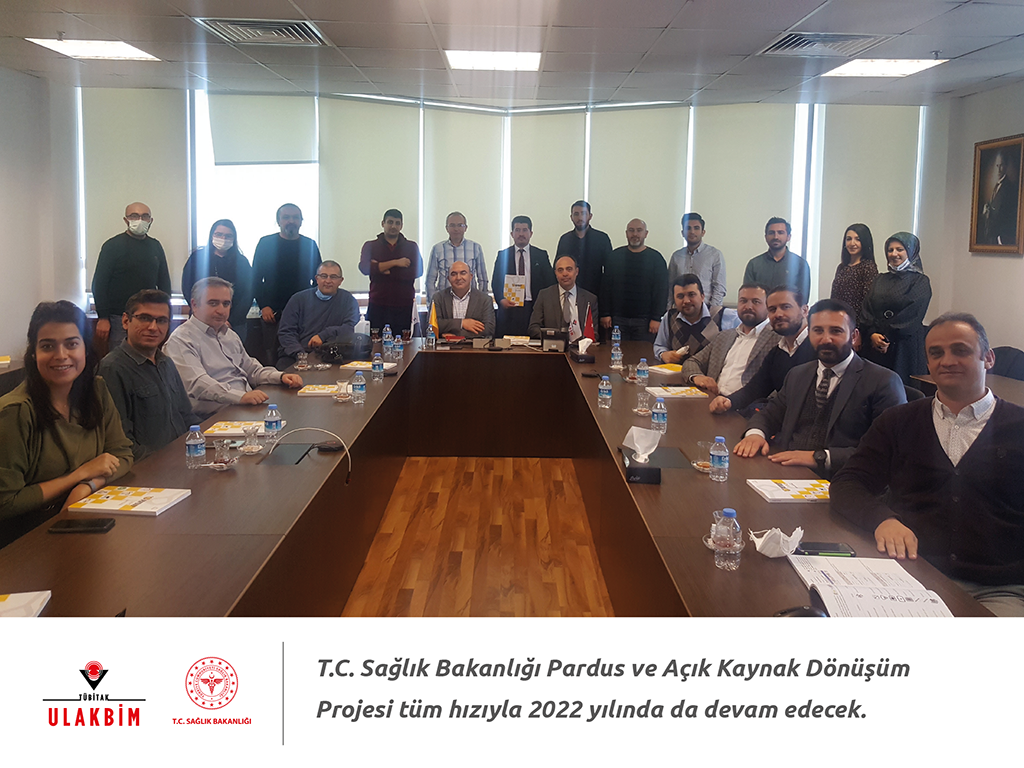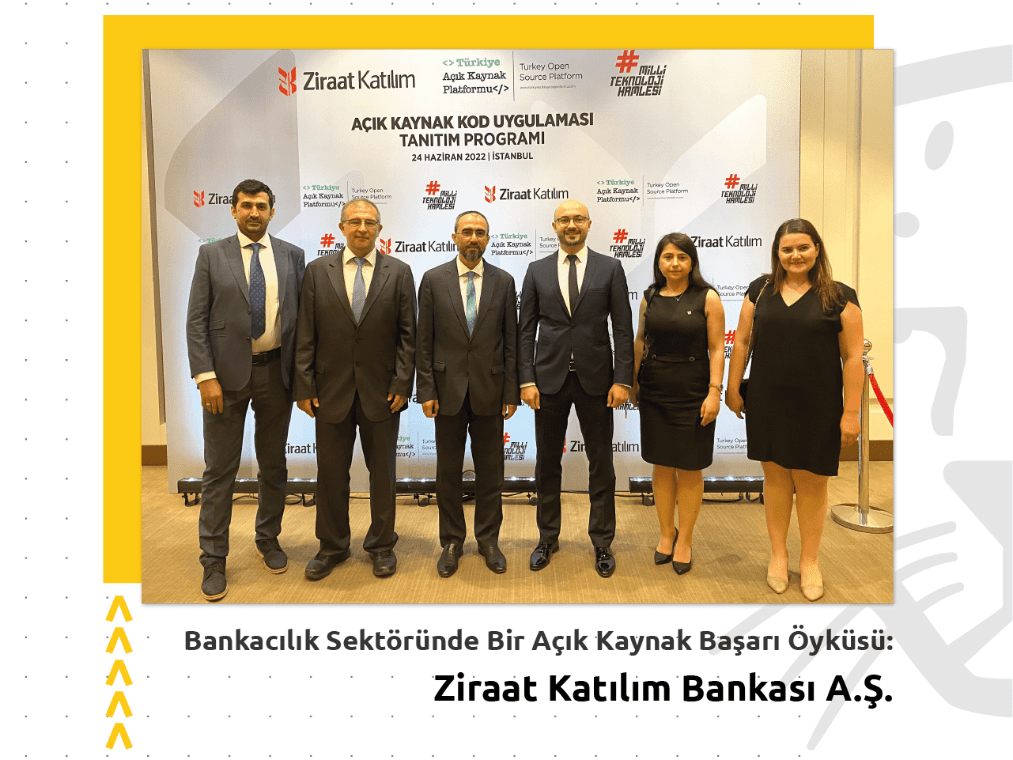The Pardus Project, initiated in 2003 at TÜBİTAK BİLGEM, transitioned to the oversight of the National Academic Network and Information Center (ULAKBİM) under the Scientific and Technological Research Council of Türkiye (TÜBİTAK) in 2012, with seven major and 22 minor versions successfully released, achieving remarkable prevalence figures globally, a milestone that only a limited number of software releases have attained. The Pardus Project is now set to transition to the TÜBİTAK BİLGEM Software Technologies Research Institute (YTE) beginning October 2024.
Pardus, committed to advancing development and fostering widespread adoption under the auspices of TÜBİTAK ULAKBİM with the overarching objective of reducing foreign dependency, particularly in the realm of informatics, has recently passed the torch to enhance its visibility along with TÜBİTAK BİLGEM products that are integral to some of the most strategic, critical, and sensitive projects within our country.
The Story of Pardus
The Pardus Project launched its initial efforts in 2003, aiming to meet the basic desktop needs of computer users with a certain level of informatics literacy. The project successfully launched its first stable release, Pardus 1.0, on December 27, 2005, under the auspices of TÜBİTAK BİLGEM, the National Research Institute of Electronics and Cryptology of Türkiye (UEKAE).
In 2012, the vision of the Pardus project was updated to promote the widespread adoption of open source/free software, particularly in the public sector, and the management responsibilities for the project have since been entrusted to TÜBİTAK ULAKBİM.
The first stable version, Pardus 2013 Enterprise Edition, was formally announced to the public during a press conference held subsequent to its publication on March 25, 2013 (https://ulakbim.tubitak.gov.tr/tr/haber/pardusun-2013-surumu-kullanima-sunuldu).
With the launch of Pardus 2013 Enterprise Edition, the Pardus Call Center (444 5 773) has become operational. Pardus stands as the sole operating system that has been offering free support directly through a specialized call center for over eleven years. Pardus Call Center and Pardus Help Desk are dedicated to offering assistance and technical support to users.
Since 2017, the Pardus Operating System has adopted a biannual release cycle, culminating in major versions 17, 19, 21, and 23, each of which major releases have been supplemented by five minor versions. The latest release, Pardus version 23.2, was launched on July 16, 2024, including ongoing package updates delivered on a weekly schedule. (https://www.pardus.org.tr/pardus-surum-notlari-23-2/). Pardus has established itself as a paragon of stability among distributions, largely attributable to its steadfast commitment to a consistent versioning calendar over the past seven years.
Widespread Adoption/Development
Since 2013, public informatics professionals have participated in comprehensive training programs focused on Pardus and GNU-Linux System Management, with the aim of promoting the widespread adoption of the Pardus Operating System, particularly within the public sector.
The first Public Open Source Conference (KAK) took place in 2015 and ran uninterrupted until 2019, fostering the exchange of transformation stories and experiential insights within the public sector.
Supports have been extended for initiatives focused on the promotion and training of Pardus among several NGOs actively engaged in the open-source domain, such as the Turkish Linux Users Association (LKD) and Internet Technologies Association (INETD), also encompassing public institutions, universities, and numerous educational organizations.
The initiatives undertaken by the Pardus, aiming at advancing the widespread adoption of Open Source software within the public sector in collaboration with the Digital Transformation Office of the Presidency of Türkiye, have reached a pivotal milestone with the issuance of the Presidency Circular published in 2023, prompting public institutions to commence transformation analyses based on the recommendations and report templates provided (https://cbddo.gov.tr/projeler/acik-kaynak/).
Pardus is utilized by various public institutions, notably including TÜBİTAK, the Disaster and Emergency Management Presidency (AFAD), the Ministry of National Defence (MSB), the Presidency of Religious Affairs, the Presidency of Strategy and Budget, the Information and Communication Technologies Authority (BTK), and the Istanbul Water and Sewerage Administration (İSKİ). The migration to the Pardus operating system in public healthcare institutions began in 2016, following an agreement established with the Public Hospitals Union of Bursa. Initiated by the Bursa province, this transition has scaled nationwide Türkiye, with a concentrated focus on urban healthcare facilities in Aydın, Kırıkkale, and Kütahya (https://pardus.saglik.gov.tr/).
The transformation case studies of various institutions utilizing Pardus are published on the website pardus.org.tr/roportajlar/. Moreover, Pardus has garnered exceptional reviews, particularly from international users, on the DistroWatch platform, which rates a wide spectrum of Linux distributions, achieving a notable sixth-place ranking with an average rating of nine points.
The adoption of Pardus in the private sector is gaining significant traction, as evidenced by its implementation across various platforms, including Ziraat Participation Bank, Nesibe Aydın Schools, Sistem Patent, Manisa Organized Industrial Zone, Calinos Holding, Uğurlular Textile, and several e-commerce websites.
Pardus in Education
The primary application of Pardus is found within interactive boards deployed by the Ministry of National Education (MEB). Currently, over 220,000 of these interactive boards are connected to the internet and are fully operational (https://tahta.etap.org.tr/). Combined with the laboratory computers, the total exceeds 250,000 units. As stipulated in the agreement with the MEB, there is an ongoing effort to migrate all interactive boards and personal computers in laboratories to the Pardus operating system (https://www.meb.gov.tr/okullarda-mill-isletim-sistemi-pardus-yayginlastirilacak/haber/31964/tr). A significant milestone has been achieved on a global scale for Linux distributions, with more than 250,000 machines currently managed under the MEB framework.
Pardus ETA participated in the BETT show in London in 2015, in partnership with the Ministry of National Education, and took part in the CEBIT 2016 Expo in Hannover, aimed at enhancing its visibility on the international stage.
Since 2018, the Pardus Open Source Days (PAK) in Samsun have offered training sessions focused on Pardus and open-source software to high school students, with the aim of familiarizing them with the principles of free software and fostering broader adoption of this mindset.
Pardus has provided on-site training to over 100 institutions, predominantly universities. Individuals interested in gaining knowledge about the Pardus Operating System and open-source technologies may also access online training through the Pardus Distance Education Center (https://uzem.pardus.org.tr/). Currently, more than two thousand users benefit from a variety of educational offerings available through this platform.
User Services/Products
The Pardus team has actively participated in various Open Source transformation projects over the years, providing numerous institutions with the opportunity to attain self-sufficiency through comprehensive training programs. A transformation guide has been published and can be accessed at https://rehber.pardus.org.tr.
In addition to a diverse range of applications, Pardus provides a Software Center (https://apps.pardus.org.tr) that facilitates the download of applications with a single click, thereby enhancing usability for both end-users and enterprises (https://pardus.org.tr/pardus-uygulamalar). In addition, several systems are currently being developed under Pardus, including Lider Ahenk, a remote management center for corporate networks, Ahtapot BSGS, a cyber security system, and Engerek, an identity management system.
A Pardus Community Portal (https://gonullu.pardus.org.tr/) has been launched as a dedicated platform for contributors to the Pardus Operating System, allowing volunteers to publish articles, share experiences, and monitor advancements in the open source world.
A highly active Pardus Forum is accessible through the Discord channel and https://forum.pardus.org.tr, in addition to well-known social media platforms. In recent years, the positive influence of Teknofest Pardus competitions has also significantly enhanced community support and engagement.
In the year 2023, Pardus was downloaded over 900,000 times.
The Pardus ecosystem comprises a total of 25 associates, with 18 functioning as transformation partners. (pardus.org.tr/is-ortaklari/).
As TÜBİTAK ULAKBİM, we have undertaken significant initiatives aimed at advancing and disseminating Pardus, which has been under our management since 2012. We are confident that under the management of BİLGEM YTE, Pardus will gain wider adoption and reach new heights. We extend our gratitude to the Pardus team for their committed efforts and wish them continued success in their new organizational environment.



